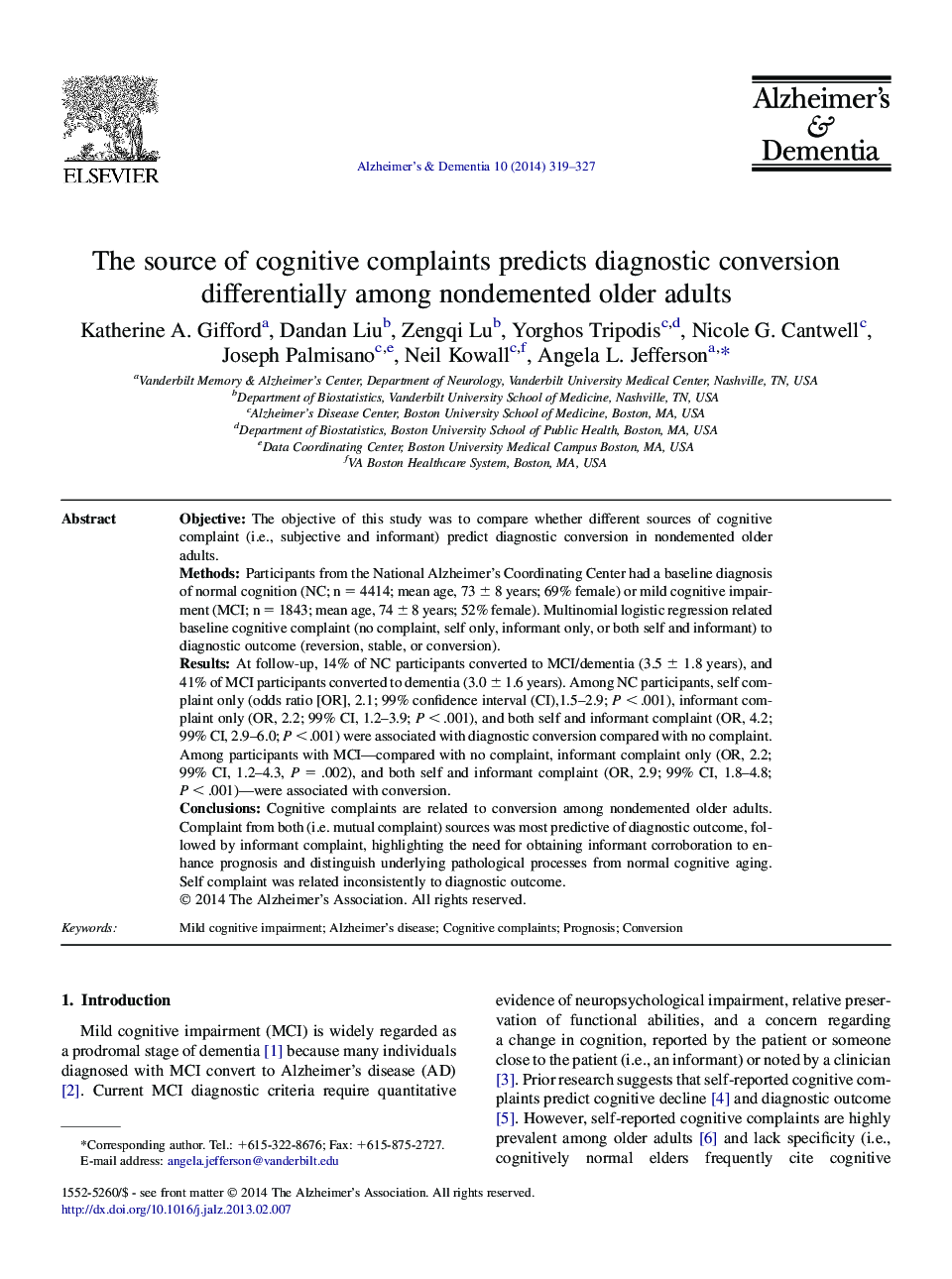| Article ID | Journal | Published Year | Pages | File Type |
|---|---|---|---|---|
| 5622992 | Alzheimer's & Dementia | 2014 | 9 Pages |
ObjectiveThe objective of this study was to compare whether different sources of cognitive complaint (i.e., subjective and informant) predict diagnostic conversion in nondemented older adults.MethodsParticipants from the National Alzheimer's Coordinating Center had a baseline diagnosis of normal cognition (NC; n = 4414; mean age, 73 ± 8 years; 69% female) or mild cognitive impairment (MCI; n = 1843; mean age, 74 ± 8 years; 52% female). Multinomial logistic regression related baseline cognitive complaint (no complaint, self only, informant only, or both self and informant) to diagnostic outcome (reversion, stable, or conversion).ResultsAt follow-up, 14% of NC participants converted to MCI/dementia (3.5 ± 1.8 years), and 41% of MCI participants converted to dementia (3.0 ± 1.6 years). Among NC participants, self complaint only (odds ratio [OR], 2.1; 99% confidence interval (CI),1.5-2.9; P < .001), informant complaint only (OR, 2.2; 99% CI, 1.2-3.9; P < .001), and both self and informant complaint (OR, 4.2; 99% CI, 2.9-6.0; P < .001) were associated with diagnostic conversion compared with no complaint. Among participants with MCI-compared with no complaint, informant complaint only (OR, 2.2; 99% CI, 1.2-4.3, P = .002), and both self and informant complaint (OR, 2.9; 99% CI, 1.8-4.8; P < .001)-were associated with conversion.ConclusionsCognitive complaints are related to conversion among nondemented older adults. Complaint from both (i.e. mutual complaint) sources was most predictive of diagnostic outcome, followed by informant complaint, highlighting the need for obtaining informant corroboration to enhance prognosis and distinguish underlying pathological processes from normal cognitive aging. Self complaint was related inconsistently to diagnostic outcome.
